From women-run kitchens serving affordable eats to high-end contemporary Japanese venues, Colombo’s culinary scene is buzzing. Visitors to the city will now find a host of old and new establishments embracing Sri Lanka’s abundance of local produce from the surrounding ocean and farms.
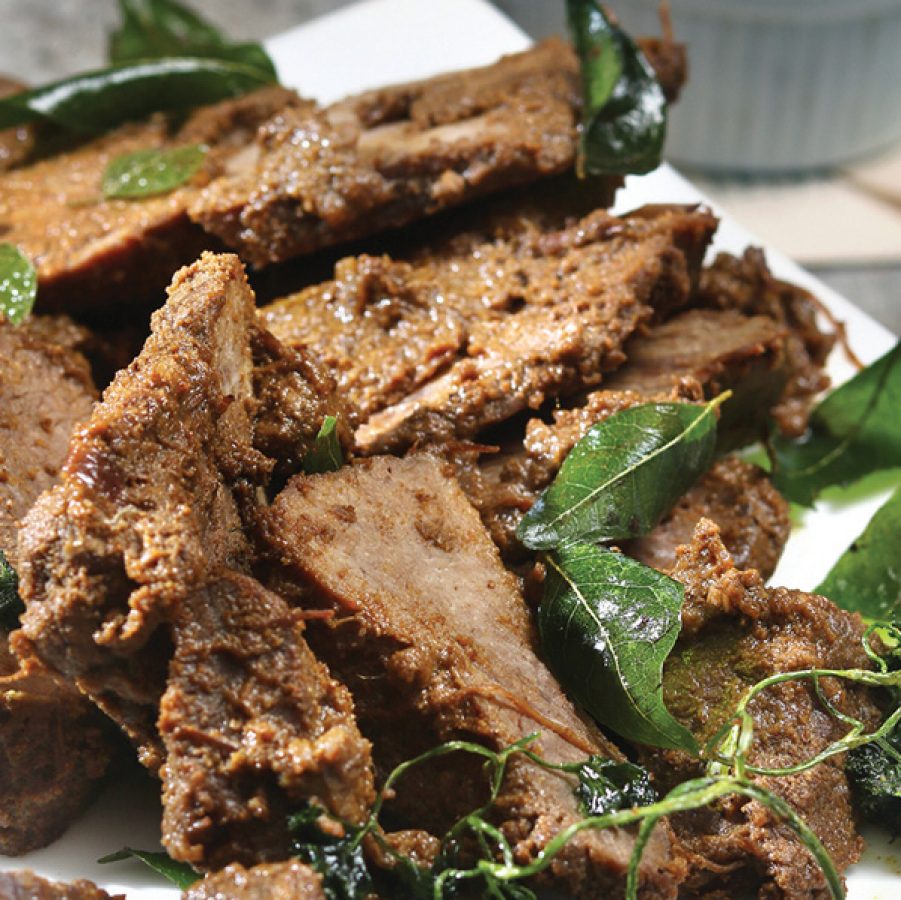
1. VOC Café by Dutch Burgher Union
Housed within an elegantly restored colonial building in one of Colombo’s more verdant neighbourhoods, VOC Café is among the city’s best spots to sample some of the staples of the Dutch Burghers, a minority ethnic group with European, Sinhalese and Tamil ancestry. Fan-cooled corridors, lofty ceilings and a houseplant-dotted outdoor garden set the mood for a breezy courtyard lunch over narang (local mandarin) drinks and bacon and egg pastries. Favourites include lamprais – rice and mixed meat wrapped up and baked in banana leaf, paired with refreshing homemade ginger beer.
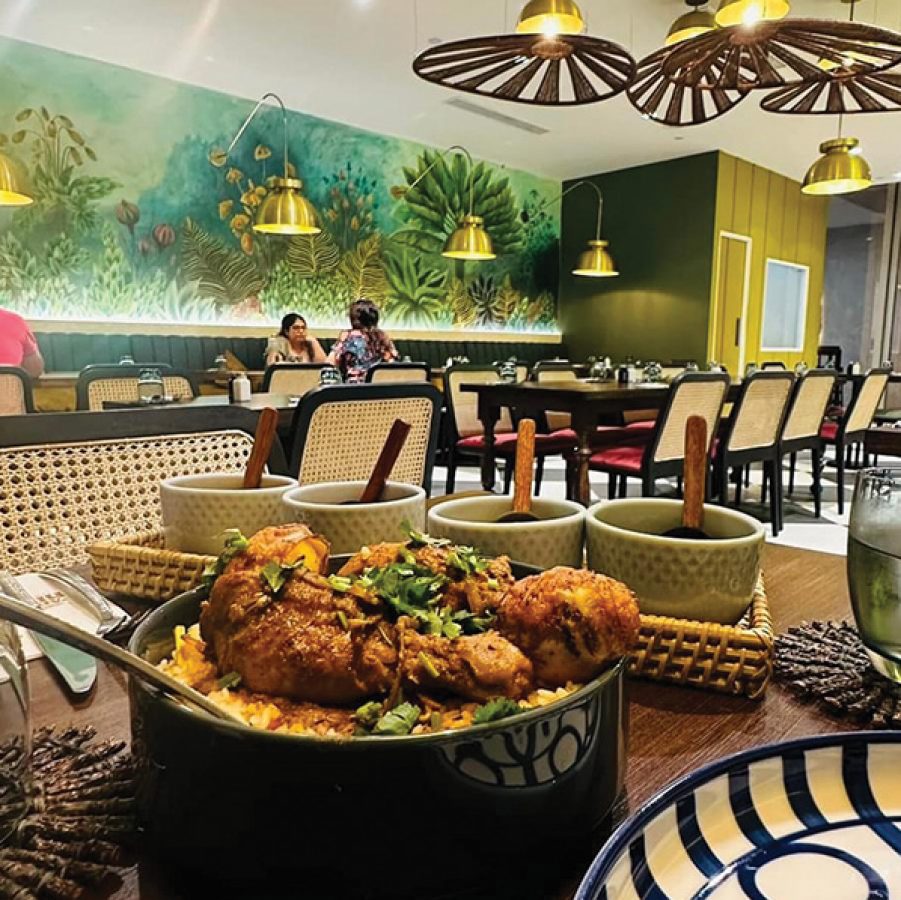
2. Amma Nissa
Everything at Amma Nissa is an ode to the island’s vibrant multicultural identity. With its quirky astronaut murals, metal pendant lights and monochrome-tiled floors, this charming restaurant occupies a spot inside the upscale One Galle Face shopping complex.
Amma Nissa stands out among other Sri Lankan restaurants in the city for its varied menu that brings together heritage dishes from across communities. Highlights include the moor biryani (slow-cooked meat biryani served with pineapple chutney, pickle and Maldivian fish sambal) made to an east coast recipe, and kidu rice basket (ghee and coconut milk- infused rice served with curry and pickle).
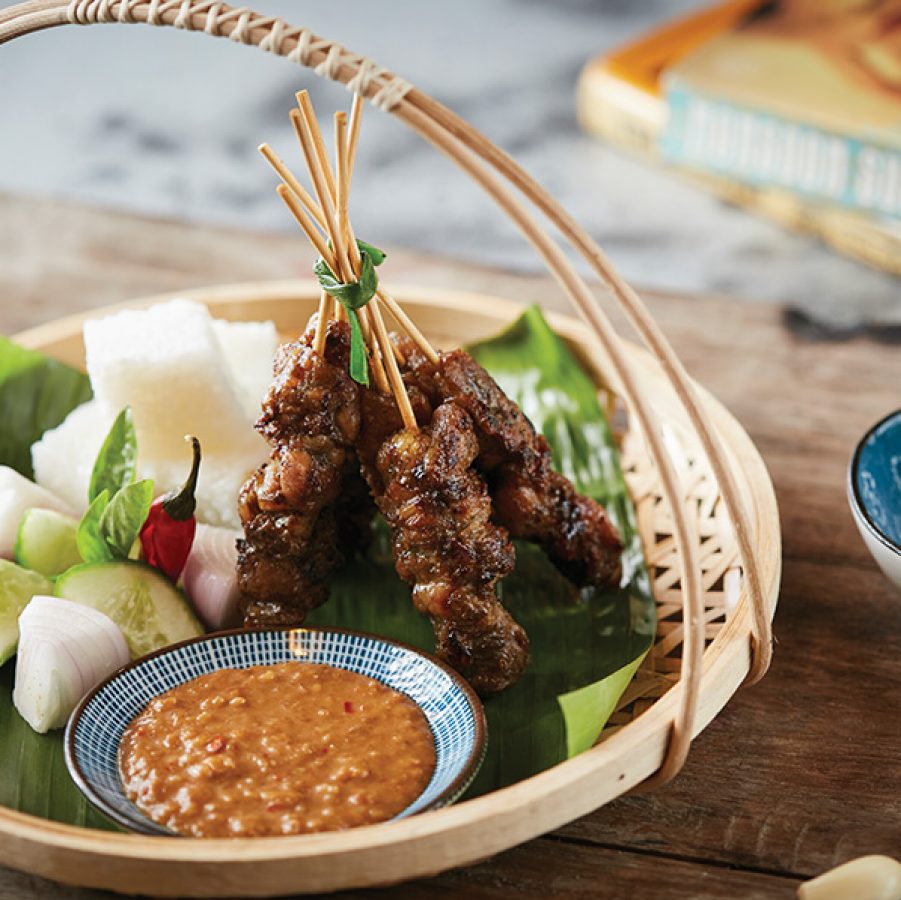
3. Monsoon
Marble dining tables, a timber countertop and modern industrial design with warm textures housed in a former warehouse building make Monsoon one of the sleekest dining venues in Colombo’s chic Park Street neighbourhood. The menu is a tribute to the abundance of monsoon harvests in South East Asia, with menu items like steamed barramundi, Hainanese chicken rice and tamarind sea bass in banana leaf. Linger over weekend brunch with the restaurant’s many gin and tonic pairings or its expansive list of Sri Lankan distilled spirits, like Ceylon Arrack, made from fermented coconut palm sap.
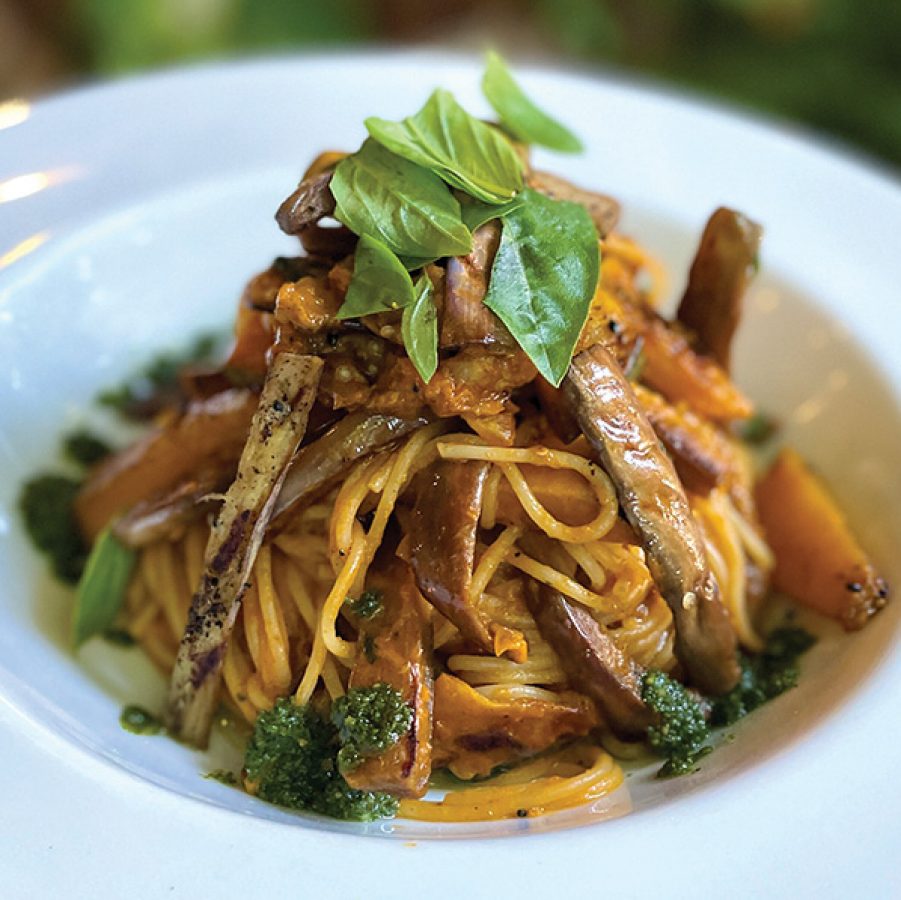
4. Life's Good Kitchen
Owners Shamika and Hiran Ganegoda have created the city’s most laidback hangout , combining hearty, feel-good, island-inspired food with warm, attentive service. Walk in and you’ll discover a lovingly tended green oasis within the buzzing city. Everything on the menu of Life’s Good Kitchen champions local ingredients and nods to conscious living with housemade sauces and dips. There are prawn wraps, wood-fired pizzas and plant-based options like aubergine and pumpkin pasta, and freshly squeezed local calamansi juice.
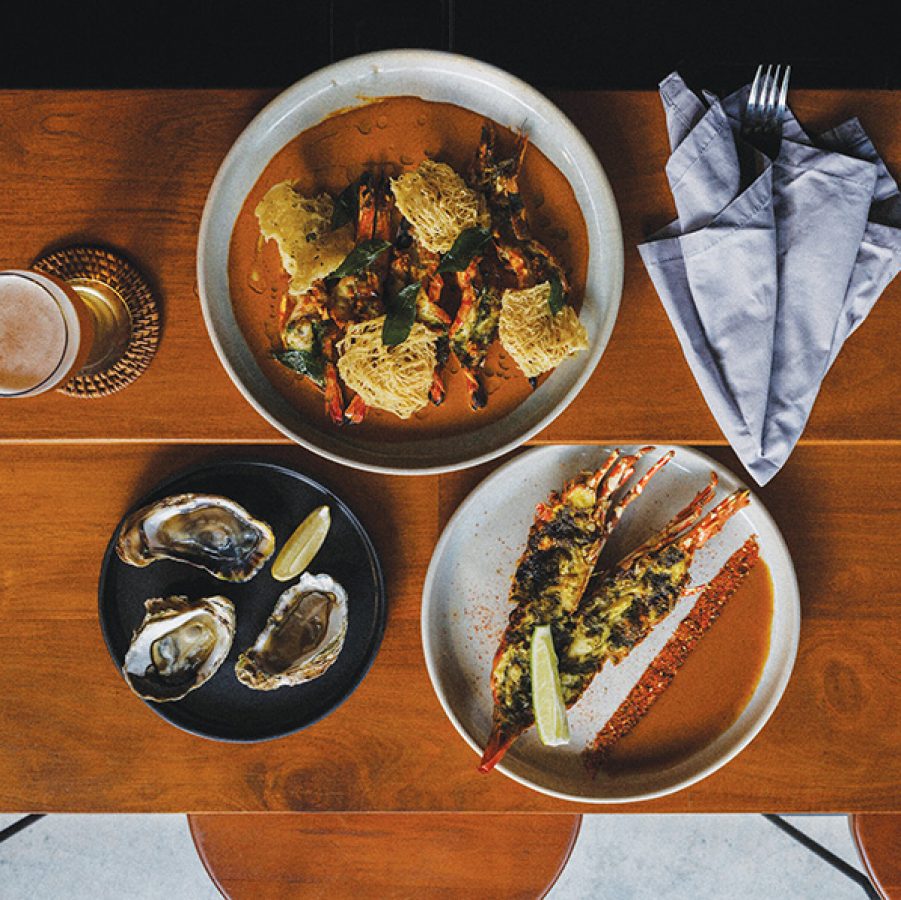
5. Gini
If there’s one restaurant you need to check out in Colombo, it’s Gini – Sinhalese for “fire”. Chef Surith Adhihetty helms the country’s first open live-fire restaurant, housed within the leafy tropical gardens of Havelock Place Bungalow. Gini celebrates fresh, hyperlocal ingredients, with seafood sourced daily from Negombo, a fishing port just 30km north. Staples include grilled squid served with lime aioli and coconut sambal, and tiger prawns in gotu kola (Indian pennywort) and coconut cream. Wash it down with the arrack sour, a cocktail sweetened with kithul (fishtail) palm treacle.
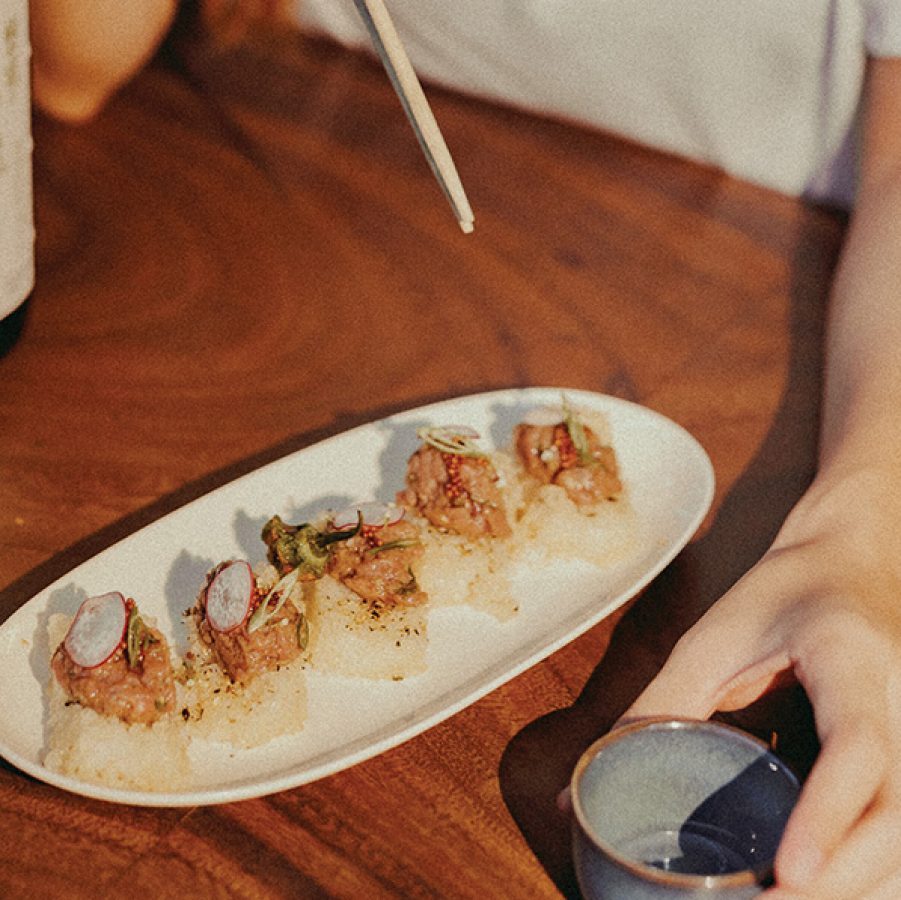
6. Tabé
Chef Wishmalak Perera has a passion for pushing culinary boundaries, and at Tabé , Colombo’s swanky new restaurant rooted in the principles of Kyoto cuisine, he’s doing exactly that. Nestled in the treetops of Cinnamon Gardens, Tabé doesn’t shy away from embracing Sri Lanka’s culinary heritage, and the result is delightful, with each dish telling a story. On the menu are locally caught yellowfin tuna served with island- grown citrus ponzu, and okoge (crispy rice cakes) topped with local crab meat, ginger, cinnamon and pineapple.
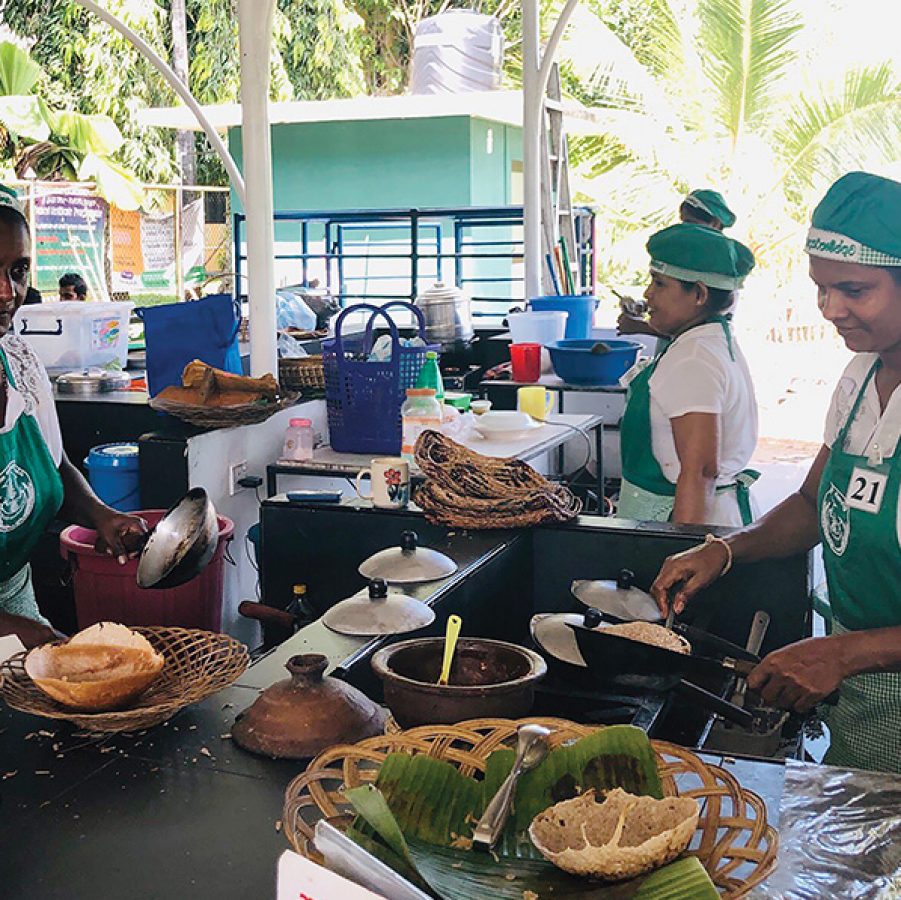
7. Hela Bojun Hala
It’s located in suburban Colombo but this restaurant is well worth the trip. It’s an open-air kitchen run by a group of friendly women serving fresh, affordable, vegetarian and vegan Sri Lankan snacks and meals, such as vegetable kottu (shredded flatbread and vegetables), lavariya (caramelised coconut with tangles of rice noodles) and baby jackfruit croquettes. Hela Bojun Hala – Sinhalese for “native food outlet” – is a Department of Agriculture initiative that began as a way to celebrate local produce and empower women. You’ll spot them all over the island promoting healthy eating and regional fare.
Hela Bojun Hala, Timber Corporation Road, Battaramulla
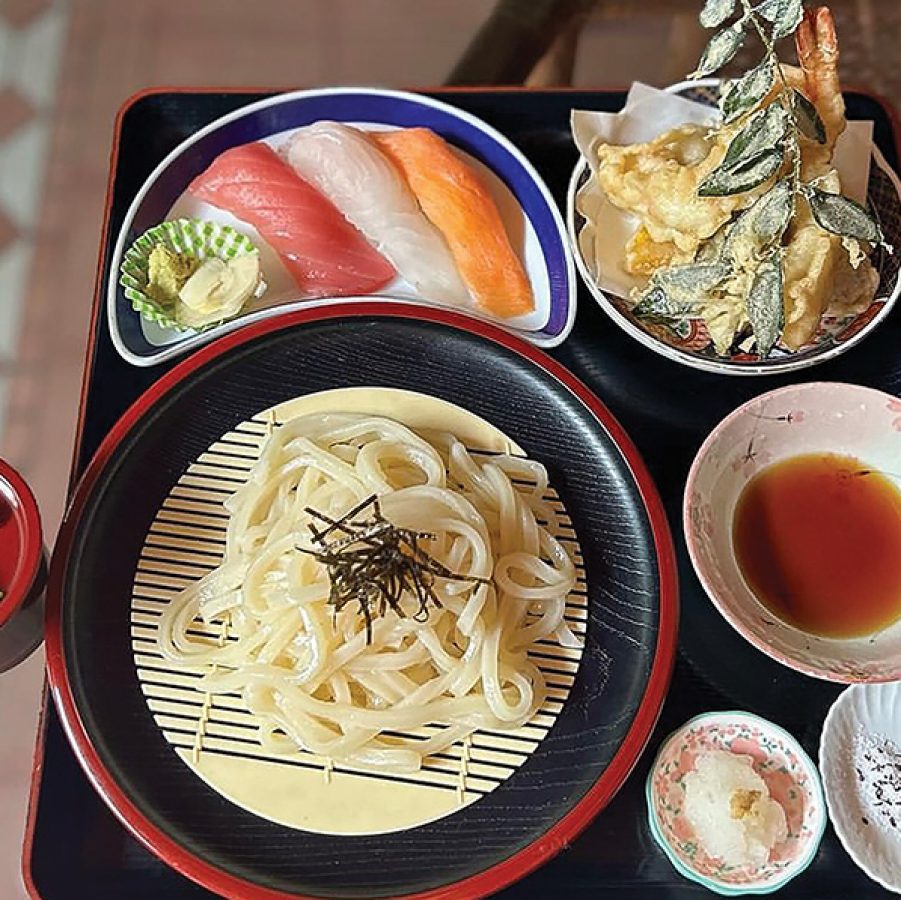
8. Café Japan
Café Japan is an icon among Colombo’s Japanese restaurants. For one, it offers seriously good Japanese home cooking for prices that won’t break the bank. Two, this family-run restaurant sits in a colonial residence that’s ideal for a languid dinner over sake, fresh tuna nigiri and avocado maki. Don’t miss its bento and soba meals, which include miso soup, all-you-can-drink green tea and several dessert options – standouts include palm sugar-dusted vanilla ice cream, coffee jelly and matcha brownies.
More inspiration
Colombo travel information
- China – the Chinese Mainland, Hong Kong SAR, Macao SAR and Taiwan Region
- Hong Kong SAR - English
- Chinese Mainland (China) - English
- Taiwan, China - English
- 香港特別行政區 - 繁體中文
- 中国內地 - 简体中文
- 中國台灣 - 繁體中文
- Africa
- South Africa - English
- Americas
- Canada - English
- Canada - Français
- United States - English
- Asia
- Bangladesh - English
- Korea - English
- Singapore - English
- Cambodia - English
- 한국 - 한국어
- Sri Lanka - English
- India - English
- Malaysia - English
- Thailand - English
- Indonesia - English
- Maldives - English
- ประเทศไทย - ภาษาไทย
- Indonesia - Bahasa Indonesia
- Myanmar - English
- Vietnam - English
- Japan - English
- Nepal - English
- Việt Nam - tiếng Việt
- 日本 - 日本語
- Philippines - English
- Australasia
- Australia - English
- New Zealand - English
